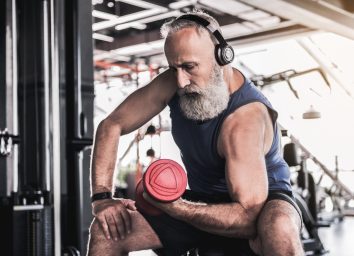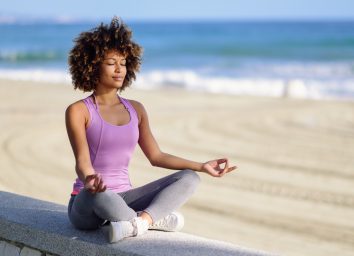Exercising For This Long Can Improve Vaccine Effectiveness, New Study Says
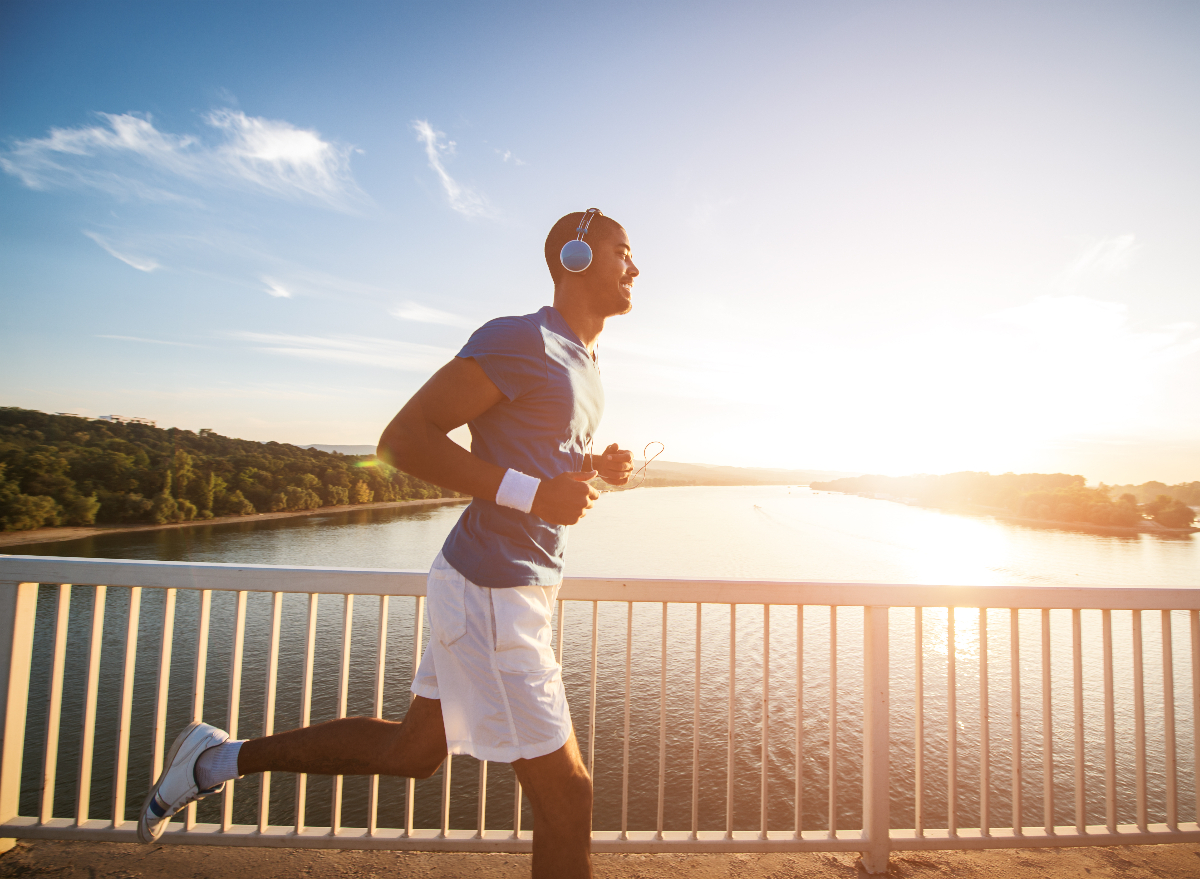
It's been proven over and over that exercising is extraordinarily beneficial to your health. The time you put into some cardio, strength training, or even a fun workout class can help you mentally and physically in many positive ways. Some of the health benefits include maintaining weight, improving your flexibility and movement, and strengthening your muscles and bones. Did you know that exercise can also greatly impact your immune system? A new study reveals how working out can improve vaccine effectiveness.
Read on to learn how much exercise can improve vaccine effectiveness, and next, be sure to check out The 6 Best Exercises for Strong and Toned Arms in 2022, Trainer Says.
Working out has an overwhelmingly positive impact on your immune system
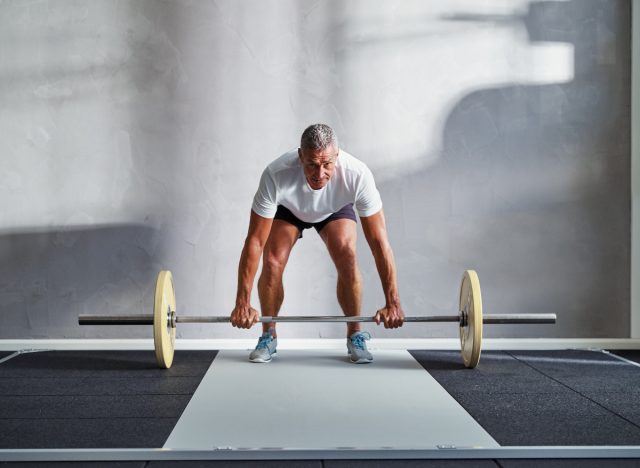
Exercise has an overwhelming impact on your immune system. According to a review published in the National Library of Medicine, most experts agree that consistent periods of short exercise of moderate intensity are advantageous to your body's immunity—most especially for individuals who have a chronic illness and adults who are older.
Related: The Best Immune-Boosting Workout For People Over 60, Trainer Says
All it takes is approximately 90 minutes of exercise after receiving your vaccine to heighten the effectiveness
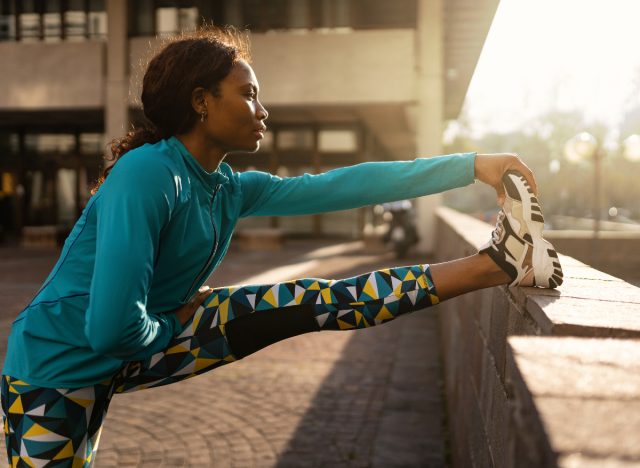
According to recent research, exercise is now even more beneficial. A new study reveals that exercise can heighten the effectiveness of vaccinations. Yes—this includes vaccines for the flu and COVID-19. All it takes is performing exercise for approximately 90 minutes after receiving the vaccine. The study specifies "adults who exercise regularly may increase antibody response" to COVID or flu vaccines, when followed by one "single session of light- to moderate-intensity exercise post-immunization." This is, of course, only if you are without any side effects and feel up to physical activity.
Here's how the study went down
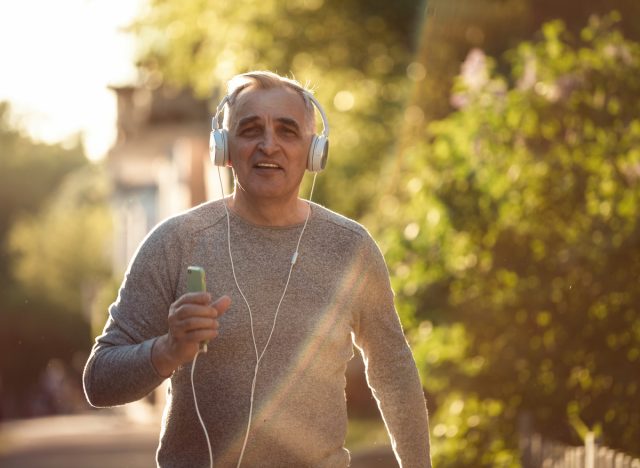
The study was reported recently in Brain, Behavior, and Immunity. Researchers observed a total of 70 individuals after receiving their first COVID-19 vaccine or a flu vaccine. Each of the individuals was in one of 3 Groups. Group 1 began exercising at a light to moderate level for a total of 90 minutes, within a 30-minute timeframe after receiving their shots. Group 2 consisted of individuals who received only a flu vaccine, and they exercised for a total of 45 minutes. Group 3 remained seated after receiving their shot. The exercise consisted of a brisk walk outside, or a stationary bike ride, and the goal was to achieve a heart rate between 120 to 140 beats per minute.
Every participant's antibody level was measured at three different times: before their vaccine, two weeks after, and again four weeks after. The data reflects that each participant's antibody level increased within one month following their shot. Antibody levels were deemed "statistically significant" in Group 1 (those who exercised for 90 minutes after receiving their vaccination), as noted by professor of kinesiology and member of the Nanovaccine Institute at Iowa State, Marian Kohut, to the New York Times. (Kohut also supervised the study.) Group 2, who exercised for 45 minutes (flu vaccine only), had no antibody increase.
Related: This Is The Time Of Day You'll Get The Most Effective Workout
The conclusion
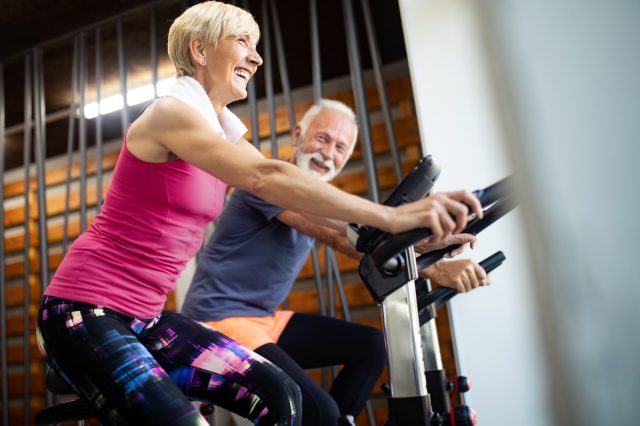
The study concludes that when individuals exercise after receiving the COVID-19 vaccine, there is an increased level of antibody response, without increased side effects. Additionally, light to moderate exercise for a longer time period seems to increases antibody response after being vaccinated.

